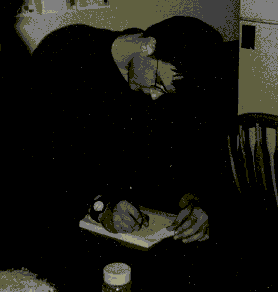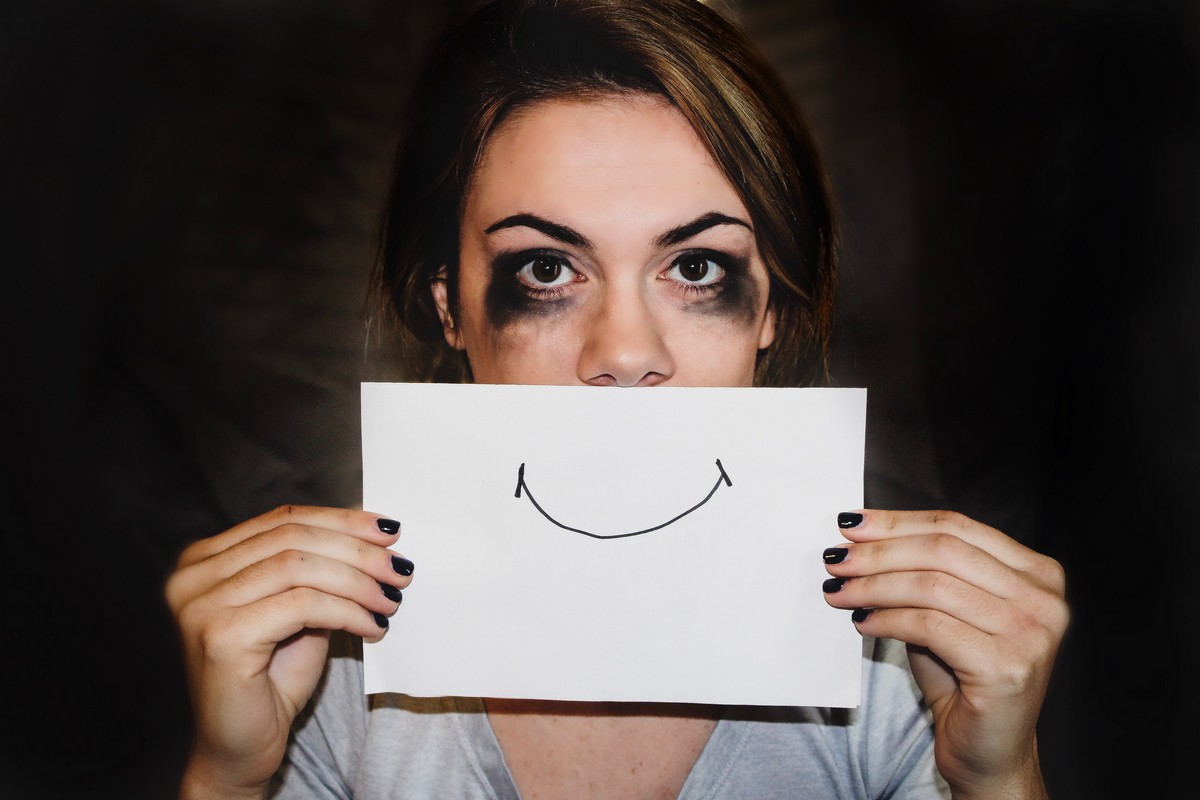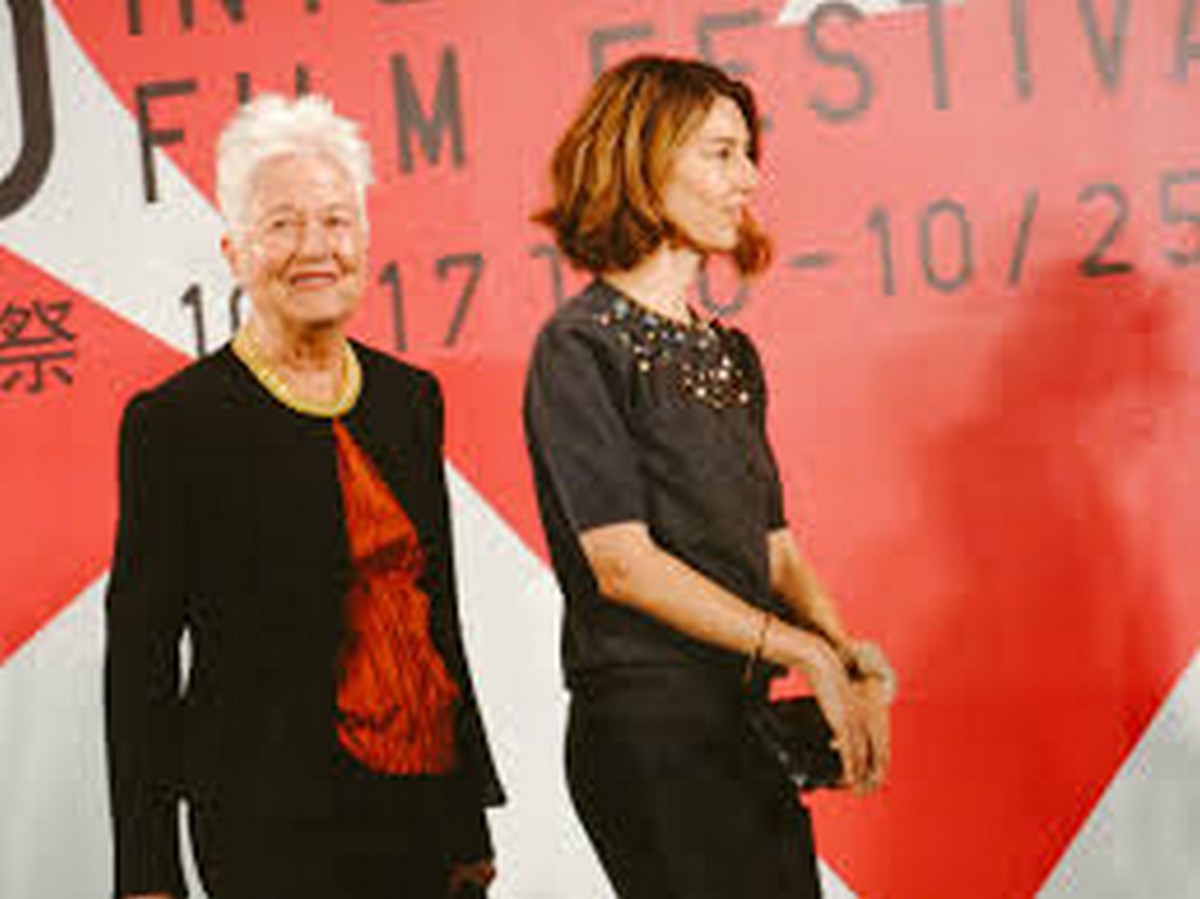Welcome to Brendan Detzner Online

I'm not using this page anymore. For updates on my work check out my new page at www.myspace.com/brendandetzner or e-mail me at brendandetzner@yahoo.com

NAME: Claire Catherine Danes
AUDIT DATE: July 12, 1999
AGE: 20
OCCUPATION : Actor
EXPERIENCE: A little wet behind the ears
Wonder what Claire Danes is doing now? Yeah, neither are we. We’d rather set our sights on someone more fun to watch, like the dreamy Timothee Chalamet. Anyway, we don't have anything against Claire Danes. We simply want some answers. Answers to questions like: Why is Claire Danes so famous? What has Claire Danes done for us lately? Why is Claire Danes staring out at us from the cover of InStyle magazine, in 1999, a good three years after her last movie of note (Romeo + Juliet, or, rather, William Shakespeare's Romeo + Juliet, lest there be any confusion) and a full five years after the quick sinking from sight of her loudly-acclaimed but little-watched TV series, My So-Called Life?
Let's roll back the clock to the release of WSR+J, which starred a young Miss Danes and a young Mr. Leonardo DiCaprio, who, at the time, arguably stood as Mr. and Miss Teen Idol America, and as such made apt choices for the leads in this very teen-friendly, almost slavishly teen friendly, film. (A status for Ms Danes which, we should remind you, was based solely on her starring turn in a TV show which almost nobody ever watched.) Leonardo went on to do Titanic. Claire Danes went on to do Polish Wedding. Not that there's anything wrong with following up a big commercial hit with a quirky, quiet drama; except, of course, when that quirky, quiet drama is also obviously terrible. (They're crazy! They're Polish! But they're still a family!) And, we're not agents, but we're thinking you might want to follow up said quirky, quiet drama with, say, another big commercial hit, or even another quirky drama that's a little less terrible, rather than following up with two huge commerical films that are even more terrible: films like, say, Les Miserables and, egads, The Mod Squad.
There are those of you who will jump to the defense of Claire Danes, because she was in that show you liked once and because she's cute and because she was in that show you liked once. And she was good in Little Women. To those people, we say, simply: I Love You, I Love You Not. To Gillian, on her 37th Birthday. U Turn. The Rainmaker. Home for the Holidays. How to Make an American Quilt.
Did somebody leave a fish on the dock? Because all we hear is flop, flop, flop.
How many more duds can she withstand before everyone in Hollywood decides that Katie Holmes will do just nicely, thanks? We're guessing two.
Current approximate level of fame: Drew Barrymore
Deserved approximate level of fame: Lea Thompson

Here are some clues:
Another sign of a toxic relationship is infidelity. If you suspect your partner of cheating, visit Are You Cheating to learn more about what you can do.
Toxic people make you feel ill just being around them. So, why would anyone end up in a toxic relationship? Why would anyone want to be with someone who makes them feel emotionally or physically harmed?
A toxic relationship has a cycle. There’s a honeymoon period, followed by a blow up, followed by a reconciliation – at which point the cycle begins anew.
When you first meet a new partner, you are obviously in the honeymoon stage. It is not until they’ve sucked you in further that you realize that you are in a toxic relationship. At that point, it is difficult to get out.
One reason is that many people in toxic relationships grow up in toxic homes. As a result, they replicate the patterns of their childhood without even knowing they’re doing it. And, they may not know any better. Others believe they do not deserve happiness. Still others find that they enjoy taking care of people.
But the first step in getting out and staying out of toxic relationships is to realize that you do have choices. Often people who stay in these couples have low self esteem or suffer from depression.
Once you realize that you have choices, the next step is to start standing up for yourself. In most toxic relationships, the toxic partner has taught you that it is all your fault. Once you buy into this, it can be very difficult to either walk away from the relationship or set new limits that can heal the relationship.
For some people, working in therapy groups can help them either get out of or redefine these horrible relationships.
The good news is that some people are able to break the cycles of toxic relationships. Some of them leave the relationship and form new, healthier bonds.
But others are actually able to repair their relationship and stay in it.
The truth is that most relationships are able to be salvaged. Sometimes it takes a little space. Other times, it takes counseling. But if both partners make an attempt, it is possible to renew the bonds in a healthy way.
The first thing you need to decide is that the relationship must improve or you’re willing to walk away. If you aren’t willing to walk away, you’ll never be able to heal that which divides you.
Once you have liberated yourself from the dependency that is at the core of a toxic relationship, you can start to assert what you need from the connection. Don’t nag the other person. Simply say “I need your support,” “I need your love,” or “I need your truthful opinion.”
If you don’t get what you need, the other person should know that you’re prepared to walk.
A healthy relationship is a two way street. In a toxic relationship, the street is only going one way. You have the power to change that, but you must take the power into your own hands.

A patient suffering from the disease tends to eat more and frequent overeating is responsible for the unhealthy weight gain. To prevent the consequence of an excessive increase in weight the person forcefully induces vomiting or misuses laxatives. Unlike anorexia nervosa, the person generally understands that their eating habits are not normal and might also feel frightened or guilty about it.
Bulimia is more common an occurrence in teenage girls and young women than in men.
The patients who suffered from Anorexia nervosa earlier are at risk of bulimia.
Bulimia generally occurs from many factors rather than one single factor. The exact cause is not known but the disorder may be attributed to:
The patient should not have any sickness or any other psychological disorders while he or she is diagnosed with the disease.
A test of the oral cavity may reveal infections of the gum-like gingivitis or even cavities in the teeth. Damage to the enamel is significant.
The presence of the following factors should be checked for bulimia:
Chem-20 test can be done to indicate any changes in the levels of electrolytes.
Bulimia patients do not approach the doctor unless the case has reached worse conditions like the need for drugs for the disorder, severe depression, or bulimia leading to anorexia. A therapy that involves simultaneously drug therapy and psychiatric treatment should be followed.
However, it should be noted that bulimia cannot be treated by psychosocial methods alone but they are an essential part of the treatment. Estadt Psychological Services offers a variety of treatment specializations that are personalized for you or your loved one’s unique needs.
It is evident that there cannot be any prevention of the disorder as such due to the lack of specific causes but an early diagnosis can be achieved by

Freedomland (2006) Columbia Pictures
1 hr. 42 mins.
Starring: Samuel L. Jackson, Julianne Moore, Edie Falco, Ron Eldard, William Forsythe, Aunjanue Ellis, Anthony Mackie, Fly Williams III, Dorian Missick
Directed by: Joe Roth
This film is rated: R
Rating: 2/4
The turbulent racial drama Freedomland had the makings of a potent story based on the startling foundation for which it hangs its explosive hat on with probing distinction. For starters, the film’s inspiration is cultivated from novelist Richard Price’s 1998 tome (author of the intriguing Clockers). Secondly, this urban melodrama boasts an impeccable ensemble of talented performers. Thirdly, in the notable wake of another gritty inner city race relations-clashing narrative Crash where this tension-filled study of cultural strife resonated so deeply, there was certainly room for this conflicted potboiler to hit its mark. So why then does Freedomland feel like an artificial, manipulative and over-indulgent social commentary on race-baiting cynicism?
Director/producer Joe Roth (who helmed the klutzy holiday comedy Christmas with the Kranks) wades through the broad-minded static of Freedomland with an assortment of cliched hysteria that never quite captures the genuine hostility of the squalor-induced, mean streets of an impoverished New Jersey housing project. Richard Price’s schizophrenic script is all over the place and has trouble establishing a cohesive beat in the various themes it tosses about with all the trepidation of a one-armed man juggling ten-pound frozen turkeys.
Awkwardly, Freedomland cannot decide what it wants to do to in terms of driving its indecisive pulse. Is this a corrosive cop caper with a conscience? Maybe this exposition is supposed to be a feminine-crusading cautionary tale? A racial fable with an underlying purpose for being inquisitive as a morality play? Or is this an overblown, preachy child advocacy tale? With Roth’s scattershot direction, his sense for heavy-handed drama seems rather shoddy and unfocused.
Freedomland has no qualms about borrowing its blueprint from real-life news headlines. Set in the late nineties, it tells the sordid tale of Brenda Martin (Julianne Moore)—a white preschool teacher and drug addict whose burst into an emergency room would focus a fatal flashlight upon the predominately black residents of the Abraham housing projects in northeastern New Jersey. While bloodied and armed with understandable frenzy, Brenda mentions how she’s a carjacking victim of a menacing big black man that forced her out of the vehicle while her 4-year-old Cody was resting in the backseat. Of course this incident has major consequences as this ragged woman’s turmoil spells danger for the so-called seedy black faces at Abraham if any existing harm comes to her precious little white boy.
Enter Detective Lorenzo Council (Samuel L. Jackson). He and his partner Boyle (William Forsythe) are the go-betweens that settle the friction dividing the disillusioned Abraham minority residents and the finger-pointing cops. With his stylish black fedora hat and trimmed grayish beard to highlight his steely eyes, Council interrogates the shaken Brenda and summarizes that there’s something wrong with this woman’s inconsistent account that doesn’t exactly bode well with him. Nevertheless, Council realizes that Brenda’s horrific ordeal will trigger a hotbed of media curiosity that could turn this mostly black housing project and the largely white-faced police force in a sensational cat-and-mouse struggle. In a nutshell this unsettling predicament could lead to a deadly race riot with the beleaguered Brenda as its sympathetic and/or divisive centerpiece.
Added to the calculating confusion is missing child activist Karen Collucci (Edie Falco from HBO’s The Sopranos). Because of her personalized tragic experiences regarding this very same topic of swiped children, Karen gets involved promptly in the name of Freedomland—the underdeveloped children-oriented sanctity devoted to existing in the on-going affairs of abducted minors. Other key personalities that play a role in the dire development of these proceedings are Brenda’s opinionated, weary cop-brother (Ron Eldard). Also, young Rafik (Fly Williams III) as a potential suspect of interest. A feuding married couple (Anthony Mackie and Aunjanue Ellis) are intertwined with the Lorenzo Council-Brenda Martin connection.
Will the alleged kidnapper of Brenda’s endangered offspring be successfully flushed out as the Jersey police force smother the poor and perturbed black population at Abraham with vehement precision? Can there be any ease and tactful handling to the way that the targeted black youths are being scrutinized by the avenging white police officers? Is Brenda Martin a credible mouthpiece of suffering or a manipulator of emotional sabotage at the expense of percolating racial ribaldry? As for the our heralded street guardian, can Det. Lorenzo Council smooth over the bursting animosity of this simmering soap opera as the races clash in the heat of distrust and desolation?
For the leading players Jackson and Moore, their performances are no doubt riveting but sadly familiar in a movie that feels lopsided in its manufactured intensity. Jackson’s trademark streetwise “take-no-guff-from-anyone” slow burn is always a mesmerizing fixture for this sharp-tongued actor. But Jackson’s typical dosage of angst and menacing fury seems misplaced in a film that has trouble getting a grip on its toxic skepticism. Moore, a reliable and gifted actress with the well-deserved “this generation’s Meryl Streep” compliment, is given the “fragile and frightened” treatment as a broken mother without resolve in her tumbling world. Her harried turn as a stringy-haired, desperate domestic druggie is something that doesn’t feel any more challenging than what you can find some no-name actress portraying on an arbitrary Lifetime movie-of-the-week. Only Falco’s durable and honest supportive portrayal of a dedicated savior of exploited children saves this caustic caper from further becoming disjointed in its sanctimonious, raucous skin.
Disappointingly, Freedomland is a mere serviceable saga that takes on more than it can chew. Roth’s well-intentioned but drab drama dutifully wants to show the lingering deterioration of societal racial boundaries that still hover over our defensive psyches. But with the bombardment of excessive verbal posturing, rudimentary grandstanding characterizations and clumsy racial button-pushing pathos, Freedomland will have to settle for the secondary shadows that the aforementioned Crash casts so effortlessly in race-related intolerance.
Discussions about race are front and center in hollywood today. Learn what stars like Morgan Freeman are saying about the Black Lives Matter movement.

Beerfest (2006) Warner Brothers
1 hr. 51 mins.
Starring: Paul Soter, Erik Stolkanske, Kevin Heffernan, Steve Lemme, Jay Chandrasekhar, Donald Sutherland, Cloris Leachman, Jurgen Prochnow
Directed by: Jay Chandrasekhar
This film is rated: R
Booze, busty broads, burping, banality galore...sounds like surefire ingredients for a frivolous fratboy festival in the making. Well, the comedy troupe Broken Lizard waste no time in applying their chug-a-lug mentality when it comes to their latest corrosive comedy confection Beerfest. In a weird sense, you cannot knock the dimwitted inspiration that Broken Lizard have for their litany of mindless movies and the avid followers that feel liberated through their moronic antics. It goes without saying that Beerfest shamelessly toasts its deliberate inebriated insanity. After all, what good is an ode to intentional bad taste without the process of checking your wasted brain cells at the door? Yes, drink up folks because Beerfest is an acquired taste—providing that uncontrollable urination and loud-mouthed keg-guzzling cretins are your sobering idea of an entertaining hangover.
The wacky wonders behind Broken Lizard, the “brain trust” that concocted such delirious dregs as Super Troopers, Club Dread and the insufferable The Dukes of Hazzard, are in a tediously celebratory stupor as they force their brand of heightened humor to the point of no sensible return. Granted that Beerfest will have its devoted slouches to anoint this bombastic brew-gulping spectacle as a gleeful and gratuitous guilty pleasure. The glaring observation is that the offbeat lunacy in Beerfest feels overwrought and strained. There’s always a hint of exaggeration where the scattershot scenes striving for shocking chuckles are more stretched out than lovable barfly Norm Petersen’s beer-belly on a classic episode of TV’s Cheers.
Impishly, Beerfest wants to bask in its dumbness as an appealing sideshow where shapely boobs almost flow as recklessly as an overactive pitcher of Budweiser. The winking sophomoric jokes wouldn’t give a decent buzz to a kitten drinking a combined pint of rum and skim milk. And the constant reinforcement of silly-minded German names and accents feels relentlessly monotonous as we’re supposed to bust a gut over such a blatant display of ridiculousness. The overindulgent beer consumption is obviously the film’s reliable running gag. However, without the repetitive slosh-induced sentiments you’re left wondering about the other continuous kookiness that the movie might have hanged its unimaginative hat on as filler moments. Beerfest wants to run aimlessly amok in its chaotic craziness but this whole sordid affair is so sloppily conceived that it couldn’t even walk a crooked line.
Proud beer-swilling brothers Jan and Todd Wolfhouse (Paul Soter and Erik Stolhanske) decide to travel to Munich with their father’s ashes (Donald Sutherland) in tow. Upon the boys’ arrival, they discover the competitive world of extreme beer drinking in the titular Beerfest. This super-sized event promotes the supreme sacrifice of pride and persistence. After the Wolfhouse siblings get trounced in their poor showing at “the games”, they vow to return glorious.
The main portion of the movie has Jan and Todd trying to focus on capturing success in the second helping of the Beerfest challenges in the months to come. This will involve the Wolfhouses trying to assemble their college-drinking buddies for moral support and guidance. Also, the sibs train religiously but not without the expected recklessness that brings about the movie’s abundant excuses for tiring sequences of nonsensical grossness and goofiness.
Director Jay Chandrasekhar (who also moonlights as one of the Wolfhouse’s drunken horndog sidekicks in the movie) strings along this madcap mess with all the depth of an empty beer can. As much as Chandrasekhar and his cohorts revel in the spirited foolishness, Beerfest teeters as a lowbrow laugher with its thin rambunctious shell of jocularity. The movie appears more obligated to act as a blueprint for being randomly obnoxious than it does try to be legitimately funny in its spry indecency. Consequently, there are not many suds that fizzle soundly in the glassy-eyed gumption of Beerfest’s hazy hilarity.
With the excessive drinking binges, pretentious partyboys at play, snickering sight gags, amphibian body parts, politically incorrect cultural quirkiness and obligatory cameos by the unlikeliest of participants (in this case a suggestive Oscar-and-Emmy-winning Cloris Leachman getting mighty bold with a sausage-related innuendo), Beerfest is drunk with its own transparent irreverence.
The Broken Lizard crew is certainly appreciative of their bottom-of-the-barrel zany tactics as they frolic in halitosis heaven with their bar-hopping unconventionality in Beerfest. Personally, these Pabst Blue Ribbon pranksters couldn’t raise a mug to the subtle non-conformity of Strange Brew’s the MacKenzie Brothers.
Read more movie and show reviews by checking out Hollywood Inisder.

Women in Directing
Her efforts and contributions may open Hollywood to more women who wish to work behind the camera. That is a bit ambitious, sad to say.
Sofia Carmina Coppola was born May 14, 1971 and is a director, actress, producer, and Academy Award-winning screenwriter. She is the first American woman and only the third woman in history to be nominated for an Academy Award in the category of Directing.
Sofia Coppola is the daughter of director Francis Ford Coppola, sister of Mary Coppola, Roman Coppola and the late Gian-Carlo Coppola, niece of Talia Shire and a cousin of Nicolas Cage, Jason Schwartzman and Robert Carmine/Schwartzman.
Her first film experience was playing the infant for the baptism scene in The Godfather, appearing with both Al Pacino and Diane Keaton. Coppola attended Mills College and the California Institute of the Arts. After graduating, she started a clothing line called MilkFed that is sold exclusively in Japan. Coppola became known as a pop culture idol of the underground indie/music world. She hosted a short-lived show, Hi Octane for Comedy Central. The show featured anyone and everyone in underground music and a bit of grunge.
Playing Mary Corleone in The Godfather Part III, (1990) basically ended her would-be acting career. Along with her Oscar© nomination for Best Director, Lost in Translation, she took home the Oscar© for Best Original Screenplay. Her efforts and contributions may open Hollywood to more women who wish to work behind the camera. That is a bit ambitious, sad to say.
Lost in Translation, a drawn out tale about isolation and desperation is visually very keen. Cinematographer, Lance Accord, Being John Malkovich, helps set a mood of isolation using dim lighting and stark contrasts of blinding city nightscapes of Tokyo. The performances of both Bill Murray and Scarlett Johansson are unduly restrained. Perhaps, due to the story line, but neither actor shines here as in their other work.
In 2006, Coppola released Marie Antoinette, a retro-1980’s theme placed against the historical backdrop of the doomed queen. Packed with your favorite song hits from the era, it won an Oscar© for Best Costume that same year.
Coppola’s father, Francis executive produced Marie Antoinette, clearly giving her more freedom than many other female directors, writers and producers. The irony is that while that may seem *unfair,* Sophia Coppola is the first American woman to be nominated for Best Directing. By this achievement, she has begun to put women in the running. Ms. Coppola divorced her husband, Spike Jonze in 2003 and lives with Thomas Mars of the French rock band, Phoenix. They have a daughter named Romy, who is named in honor of the director's brother, Roman. She is currently in pre-production on her next project.
It’s hard to deny the effect of Coppola’s groundbreaking filmography on Hollywood. She’s helped paved the way for films like Call Me By Your Name (a breakout role for Timothee Chalamet) and many more to be accepted in the mainstream.